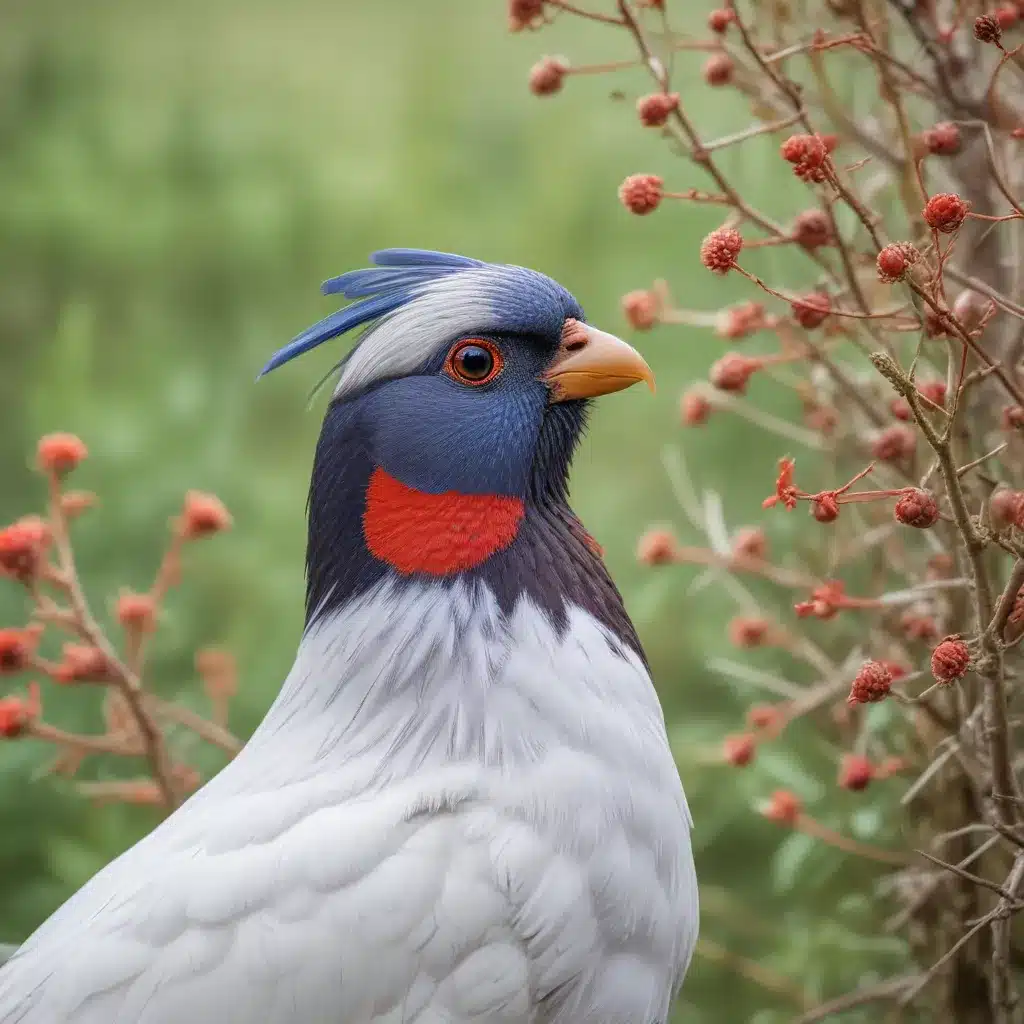
Avian Immune System
The avian immune system is a highly sophisticated and dynamic network of specialized cells, tissues, and organs that work together to protect birds from harmful pathogens and maintain overall health. As an experienced avian caretaker, I’ve seen firsthand how a robust immune response can make all the difference in preventing and managing infectious diseases in our feathered friends.
Avian Anatomy and Physiology
To understand the intricacies of avian immunity, let’s first explore the unique anatomical and physiological features that shape the bird’s immune system. Unlike mammals, the avian respiratory system is highly efficient, with air sacs that facilitate gas exchange and circulate air through the body. This specialized respiratory anatomy not only supports high metabolic demands but also exposes birds to a diverse array of airborne microbes that must be effectively neutralized.
The avian circulatory system is also distinct, with a four-chambered heart and a unique hepatic portal system that filters blood from the digestive tract before it reaches the liver. This intricate network plays a crucial role in transporting immune cells and signaling molecules throughout the body to orchestrate the appropriate immune responses.
Avian Immune Cells and Tissues
The avian immune system is composed of a variety of specialized cells and lymphoid organs that work in harmony to protect the bird’s health. The primary lymphoid organs, such as the bursa of Fabricius and the thymus, are responsible for the development and maturation of B and T lymphocytes, respectively. These adaptive immune cells are the key players in the bird’s ability to mount a targeted response against specific pathogens.
In addition to lymphocytes, the avian immune system also includes innate immune cells, such as heterophils (the avian equivalent of mammalian neutrophils), macrophages, and natural killer cells. These cells are the first line of defense, recognizing and responding to a wide range of microbial threats.
Avian Immune Responses
Innate Immunity in Avians
The avian innate immune system is highly sophisticated, with Toll-like receptors (TLRs) playing a crucial role in pathogen recognition. These receptors detect conserved molecular patterns associated with various microbes, triggering a rapid inflammatory response. This innate response involves the release of cytokines, the activation of the complement system, and the recruitment of phagocytic cells to the site of infection.
The acute phase response is another important aspect of avian innate immunity. This systemic reaction to infection or tissue damage results in the production of acute-phase proteins, such as serum amyloid A and C-reactive protein, which help to neutralize pathogens and promote tissue repair.
Adaptive Immunity in Avians
The adaptive immune response in birds is characterized by the activation of B and T lymphocytes. Humoral immunity, mediated by B cells and their antibody secretions, is responsible for neutralizing extracellular pathogens and toxins. Avian B cells can produce a diverse array of immunoglobulins, including IgY (the avian equivalent of mammalian IgG), IgM, and IgA, which play critical roles in systemic and mucosal immunity.
Cell-mediated immunity, on the other hand, is orchestrated by T lymphocytes. Avian T cells, including cytotoxic T cells, helper T cells, and regulatory T cells, coordinate the destruction of intracellular pathogens, regulate immune responses, and maintain self-tolerance, respectively.
Avian Immunological Challenges
Emerging Avian Pathogens
One of the significant challenges faced by the avian immune system is the ever-evolving landscape of emerging pathogens. Avian influenza viruses, such as the highly pathogenic H5N1 and H7N9 strains, pose a constant threat to both domestic poultry and wild bird populations. These viruses can rapidly mutate, evading the host’s immune defenses and causing devastating outbreaks.
Another emerging threat is the avian coronaviruses, which include the causative agent of infectious bronchitis in chickens. These viruses can also undergo genetic changes, leading to the emergence of novel strains that may be more virulent or resistant to existing control measures.
Strategies for Avian Immunomodulation
To address these immunological challenges, researchers and avian health professionals have explored various strategies for enhancing the bird’s immune response. Vaccination remains a cornerstone of preventive care, with the development of innovative vaccine platforms, such as recombinant proteins and virus-like particles, aimed at eliciting robust and long-lasting immunity.
Dietary supplements, including vitamins, minerals, and plant-derived compounds, have also shown promise in modulating the avian immune system. For example, carotenoids, flavonoids, and polysaccharides found in certain herbs and plant extracts have been reported to stimulate the production of antibodies, enhance phagocytic activity, and regulate inflammatory responses.
Applications in Avian Health and Production
Poultry Industry Implications
Optimizing the avian immune system has significant implications for the poultry industry. By enhancing disease resistance through effective immunomodulation strategies, producers can minimize the impact of infectious diseases, reduce the need for antibiotics, and improve overall flock health and productivity. This, in turn, translates to increased profitability, better animal welfare, and a more sustainable poultry industry.
Wildlife Conservation Efforts
The principles of avian immunology also have important applications in wildlife conservation. Understanding the immune responses of endangered bird species can help develop targeted interventions to protect them from emerging infectious diseases. Furthermore, strengthening the immune defenses of captive-bred birds can improve their chances of survival and successful reintroduction into the wild, contributing to the preservation of biodiversity.
As an experienced avian caretaker, I’ve witnessed the profound impact that a robust immune system can have on the overall health and well-being of our feathered companions. By staying up-to-date with the latest advancements in avian immunology and implementing evidence-based strategies for immunomodulation, we can empower our birds to better defend themselves against a wide range of pathogens, ultimately enhancing their quality of life and supporting the sustainability of the poultry industry and wildlife conservation efforts.
Remember, at Mika Birds Farm, we are committed to providing our customers with the highest quality of avian care and support. Visit our website at mikabirdsfarm.com to explore our comprehensive range of products and services designed to help your birds thrive.


